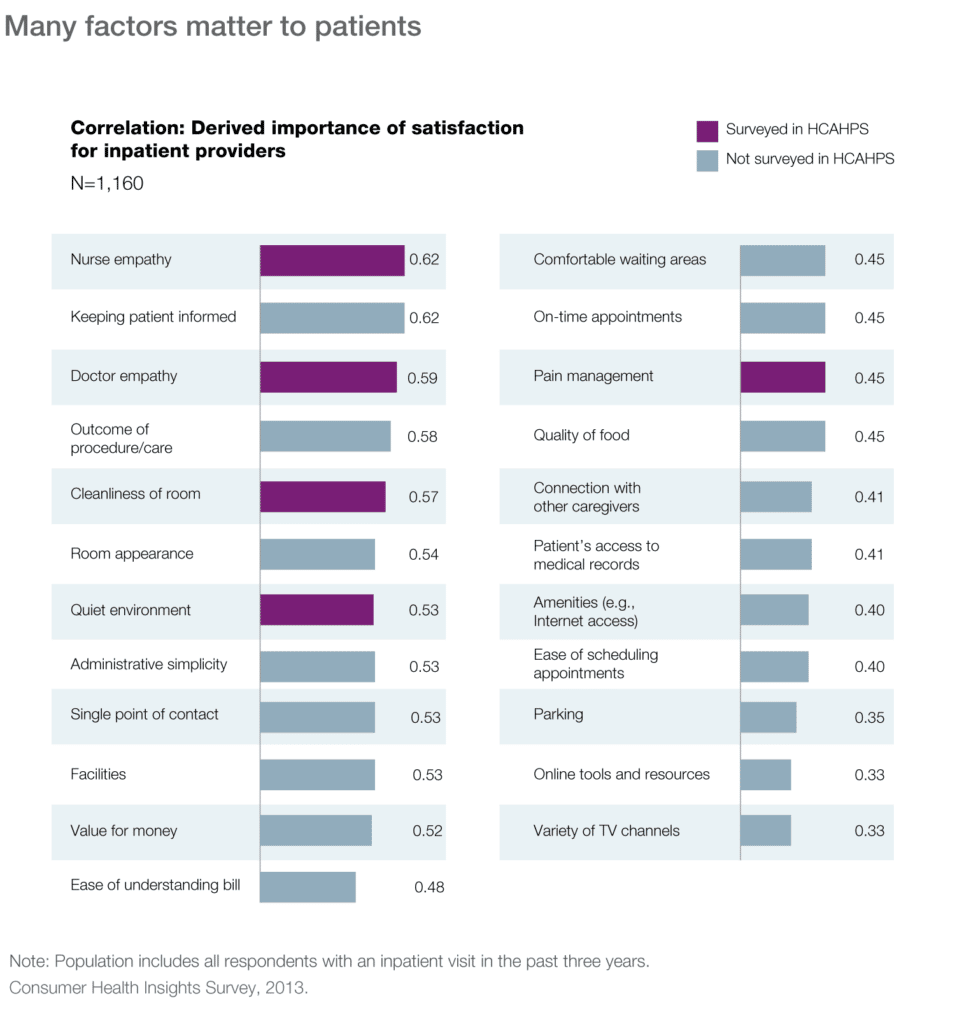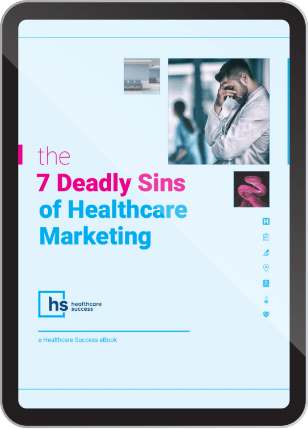How Satisfaction Unlocks Better Business Performance
 Just last month a guest post by Paul Rosen, MD, observed how some progressive-thinking health systems are reaching out to non-healthcare businesses for lessons in problem solving. “Health systems that want to deliver the best in terms of patient safety, quality and experience,” he wrote, “should consider looking outside their own industry for benchmarking.”
Just last month a guest post by Paul Rosen, MD, observed how some progressive-thinking health systems are reaching out to non-healthcare businesses for lessons in problem solving. “Health systems that want to deliver the best in terms of patient safety, quality and experience,” he wrote, “should consider looking outside their own industry for benchmarking.”
Benchmarking: The Case for Looking Outside the Healthcare Box considers how the voice of the consumer, and consumerism in general, has been a driving force in business and industry for some time. But for hospitals, medical practices and healthcare services in general, informed and empowered patients are a comparatively new entity in the satisfaction mix.
Many other service industries have considerable experience—and lessons-to-be-learned—in issues of safety, quality and service that can be of benefit to healthcare practitioners and hospital leadership. What's more, satisfaction boosts business goals.
But any conversation about patient satisfaction invariably leads the elementary challenge of determining how to measure the patient experience. A related publication, research by McKinsey on Healthcare, highlights one of the biggest sticking points:
“For hospitals and health systems, patient satisfaction is likely to become an increasingly important source of competitive advantage. Yet, many providers cannot measure the patient experience comprehensively, an important first step in improving it.”
In short, if you can’t quantify “experience,” you can’t quantify satisfaction—or progress.
[bctt tweet="You can’t quantify “experience,” you can’t quantify satisfaction—or progress."]
McKinsey acknowledges the value of HCAHPS surveys, but notes that the Hospital Consumer Assessment of Healthcare Providers and Systems tool “does not assess all of the important aspects of that experience. Furthermore, it was not designed to provide the level of detail needed for hospitals to link patient satisfaction with business performance.”
The distinction between what is, and what is not, surveyed in HCAHPS illustrates the complexity of experience and satisfaction. In their Consumer Health Insights survey, for example, “most participants said that the outcome achieved was the strongest determinant of their satisfaction with care. However, empathy from nurses turned out to have a greater impact on actual satisfaction levels.”
And while “Nurse Empathy” and “Doctor Empathy” are leading HCAHPS factors, “Keeping Patient Informed”—not survey in HCAHPS—also tops the list.

[Consumer Health Insights Survey; McKinsey]
Patient satisfaction helps achieve business objectives…
Fundamental concepts—in other industries and for hospital and healthcare providers—are that:
(a) customer satisfaction is directly connected to business performance (loyalty, sales, profit), and
(b) that satisfaction data—what is most important to customers—provides insight and guidance for improvement plans that achieve business objectives.
For additional reading, click through to:
What Patients Say is Most Important to a Positive Patient Experience
Who Knew? The Surprising Science Behind Patient Satisfaction








